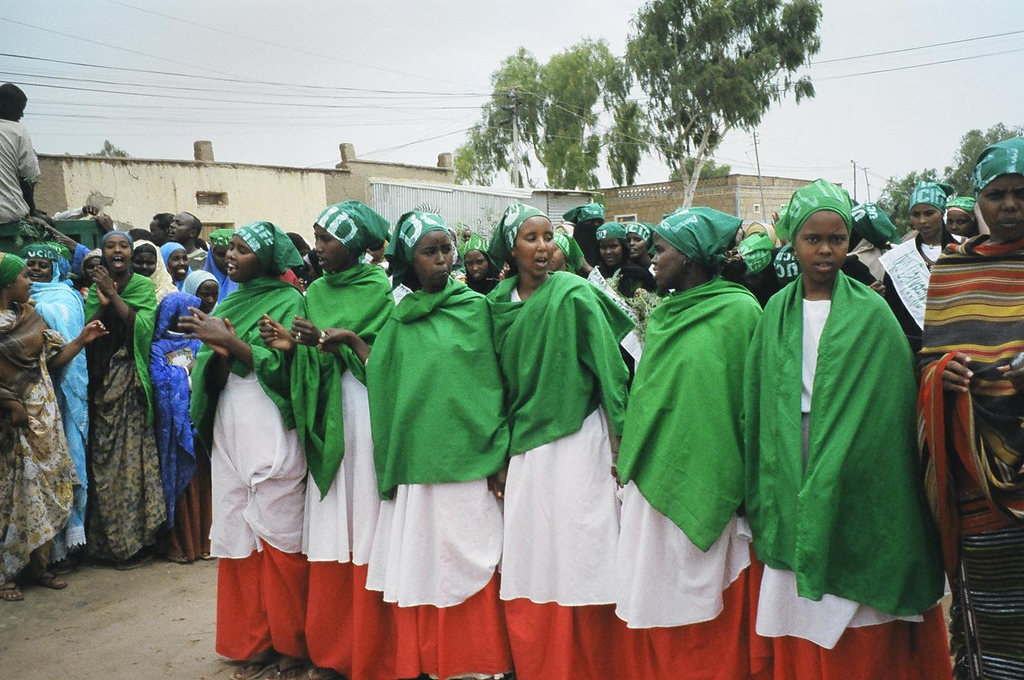The East African breakaway territory will hold presidential elections later this year amidst their decades-long struggle for international recognition.
Born a year after Somaliland won its independence, Mukhtar Harir has observed his homeland’s progress every day of his life.
“I was born when Somaliland was born,” reflects Harir, an NGO worker. “I came into the world in 1992 – Somaliland began in 1991, and I’ve stayed here peacefully my whole life. There is progress – we cannot say Somaliland hasn’t progressed. The only thing we lack is recognition.”
With 6.2 million residents and an area of 176,000 square kilometres, Somaliland, in the Horn of Africa, is the largest unrecognised country in the world by territory that it controls.
Despite its lack of international recognition and few diplomatic ties, Somaliland has managed to become one of the best-functioning democracies in the region. Its strong public participation in politics and peaceful transfers of power provide a contrast to the instability of neighbouring Ethiopia, Djibouti, and Somalia.
Somalilanders will go to the polls this November to vote for their next president. However, their elections have been controversially delayed for over two years, eroding trust in the democratic system and threatening the advances that the country has worked so hard to build.
The incumbent President Muse Bihi Abdi, from the Kulmiye party, had his mandate extended by two years after the National Election Commission postponed voting due to “time, technical, and financial constraints”.
The delay led to major clashes between opposition protesters and government security forces, who used tear gas and live ammunition, killing at least five and injuring 100 more.
“It has created some problems, people have become more suspicious about what happens next. It started political unrest and affected the economy,” says Harir from his office in Hargeisa, Somaliland’s capital city.
“During the extension, there wasn’t much growth in the country, the people were stagnant,” he adds. “We are a developing country, but the building of new infrastructure and purchase of land around big cities stopped because of this violence and the people’s trust was reduced.”
Along with unrest at home, Somaliland’s position within the Horn of Africa seems likely to shift before the election.
The country seems on the verge of its first official recognition by landlocked Ethiopia, in exchange for allowing Ethiopia to use its Berbera port, after a shock Memorandum of Agreement between the two countries was announced in January.
This may not be the long-awaited victory for Somalilanders, as Somalia, which claims sovereignty over Somaliland, is vehemently opposed to any recognition.

Somalia has already been ravaged by fighting against the Islamic insurgency group Al-Shabaab – which Somaliland has largely avoided – but further destabilisation may change this.
Although Somaliland won its independence from Somalia, it is also wary of a deal with Ethiopia, as Harir explains:
“Since Somaliland has no binding recognition, if we try to go ahead with this agreement, there is no way to raise our concerns because we have not legally existed in the world and people believe we cannot give up our land for the recognition of one country.”
“Only one country can’t give you recognition; you need to look at others,” he concludes.
Bihi hopes the deal with Ethiopia and potential recognition will be enough to negate the controversy of his extension and win him a second term.
But Candace Cook, research associate on elections at the Africa Centre for Strategic Studies, argues the credibility of his government has been damaged.
“The disagreement over the sequencing and scheduling of the presidential election undermined Somaliland’s reputation of local conflict resolution and political compromise. The upcoming election will be competitive,” Cook says.
She believes that the elections come at a time of great uncertainty for Somalilanders, but their democratic institutions have endured in spite of their relative isolation and remain an important part of their path toward recognition.
“Somaliland has made tremendous progress in its democratic trajectory. This is all despite its lack of international recognition.”
Cook adds: “Elections have been important for Somaliland’s quest for international recognition, but its democratic trajectory is not dependent on it. Broader legal and electoral reforms will be needed to ensure Somaliland continues on its path of being one of the most inclusive multi-party democratic systems in East Africa.”
Feature Image: Somalilander women taking part in a parade. Photo credit: F.Omer

